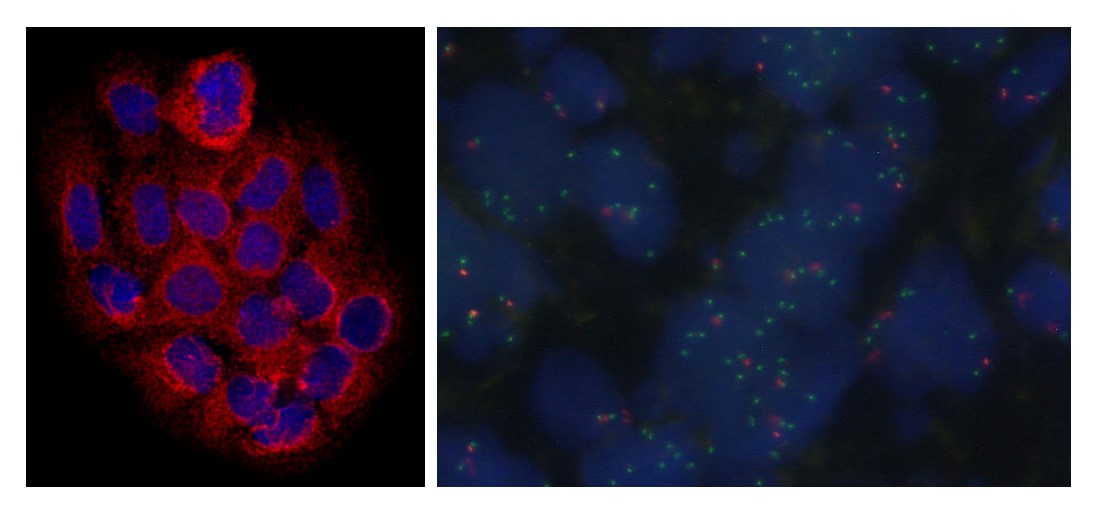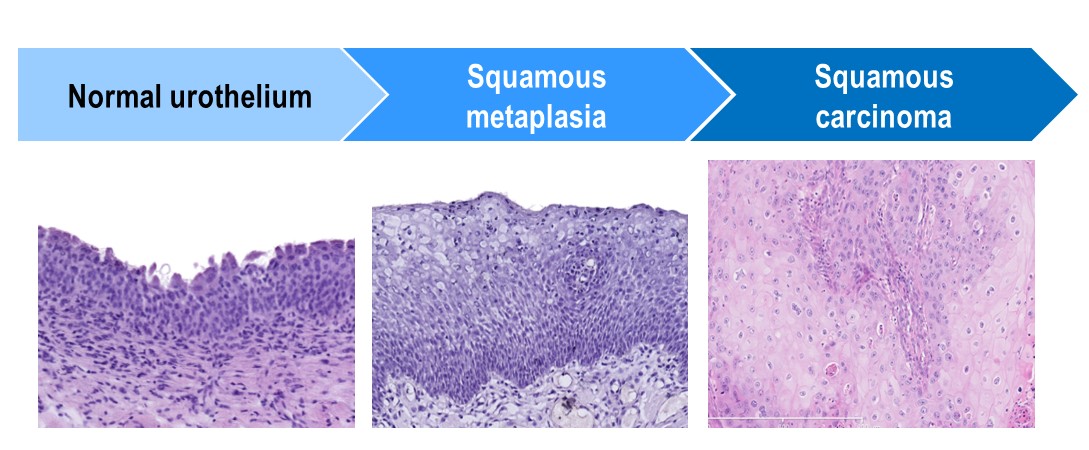Project Molecular landscapes and novel therapies of squamous bladder cancer
Pure squamous cell carcinoma (SCC) of the urinary bladder is a rarely diagnosed disease and associated with an unfavorable prognosis and less options for promising (neo)adjuvant therapy. SCC evolve from a dynamic phase transition of microscopically recognizable precursor lesions referred to as squamous metaplasia and dysplasia (see Figure X).
Still, the molecular mechanisms facilitating the aberrant differentiation of urothelial cells towards squamous epithelial cells which finally result in highly aggressive cancers are poorly understood. Therefore, we were interested in the complex multistep carcinogenesis of squamous bladder cancer development with a special focus on putative (early) key drivers which may further hold promise for novel therapeutic implications. In addition, we aim give first insight into efficacy of novel therapeutic approaches like anti-EGFR tyrosine inhibitors (TKI) and PD-L1 immune checkpoint inhibitors (ICI) in vitro and ex vivo.

So far, we identified by microarray and NGS based whole-genome profiling various candidate genes potentially governing SCC development and progression. Still ongoing, candidates are experimentally characterized by in vitro models (knock-down, overexpression) based on well-established tumor cell lines and primary cell culture derived from surgery samples of the Department of Urology RWTH Aachen University to functionally decipher the role of selected candidate genes and associated pathways. Candidate gene expression and epigenetic mechanisms of transcriptional regulation are further analyzed, for instance by performing qPCR, immunohistochemistry and bisulfite-pyrosequencing using cryo-conserved or formalin-fixed paraffin embedded tissue samples of squamous bladder cancer patients.






